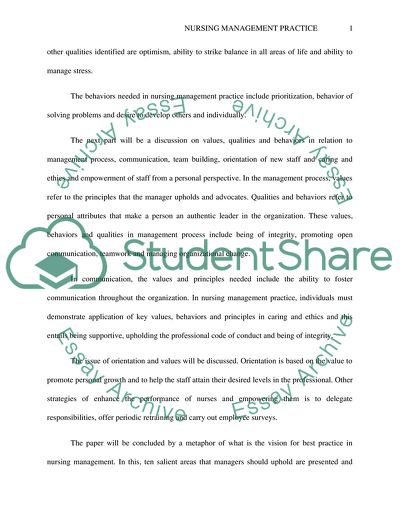Cite this document
(“Behaviors in Nursing Management Professional Term Paper”, n.d.)
Behaviors in Nursing Management Professional Term Paper. Retrieved from https://studentshare.org/nursing/1603884-conceptual-framework-for-nursing-management-practice-that-encompasses-personal-key-values-ethical-principles-knowledge-of-self
Behaviors in Nursing Management Professional Term Paper. Retrieved from https://studentshare.org/nursing/1603884-conceptual-framework-for-nursing-management-practice-that-encompasses-personal-key-values-ethical-principles-knowledge-of-self
(Behaviors in Nursing Management Professional Term Paper)
Behaviors in Nursing Management Professional Term Paper. https://studentshare.org/nursing/1603884-conceptual-framework-for-nursing-management-practice-that-encompasses-personal-key-values-ethical-principles-knowledge-of-self.
Behaviors in Nursing Management Professional Term Paper. https://studentshare.org/nursing/1603884-conceptual-framework-for-nursing-management-practice-that-encompasses-personal-key-values-ethical-principles-knowledge-of-self.
“Behaviors in Nursing Management Professional Term Paper”, n.d. https://studentshare.org/nursing/1603884-conceptual-framework-for-nursing-management-practice-that-encompasses-personal-key-values-ethical-principles-knowledge-of-self.


